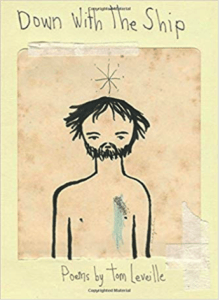And how open-ended could they be?
As technology continues to develop at an unmanageable pace, the mediums through which we consume and produce literature have expanded along a similar path. Blogs, forums, vlogs, songs, and interviews are all now looked at with some credibility and weight. Chuck Klosterman, in his existential ramblings of “But What if We Were Wrong?” even thinks that what we now know as a “book” will become obsolete in the future and that the word itself will likely change meaning entirely. This is not uncommon in our language, as we still talk about the best “albums,” “records,” and “singles,” in the music industry despite most of those releases being exclusively digital. With that in mind, many literary journals are embracing this change. Gandy Dancer accepts original songs, the SUNY Geneseo student-run Recess and Iris add playlists to their submissions list, and Catapult (along with countless others) is a journal that is fully online.





 Along with being a creative nonfiction reader for Gandy Dancer, I also serve as the editor-in-chief for
Along with being a creative nonfiction reader for Gandy Dancer, I also serve as the editor-in-chief for 



